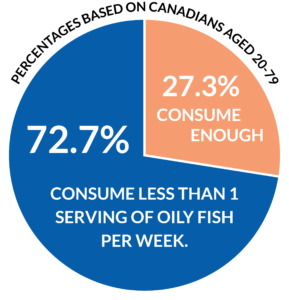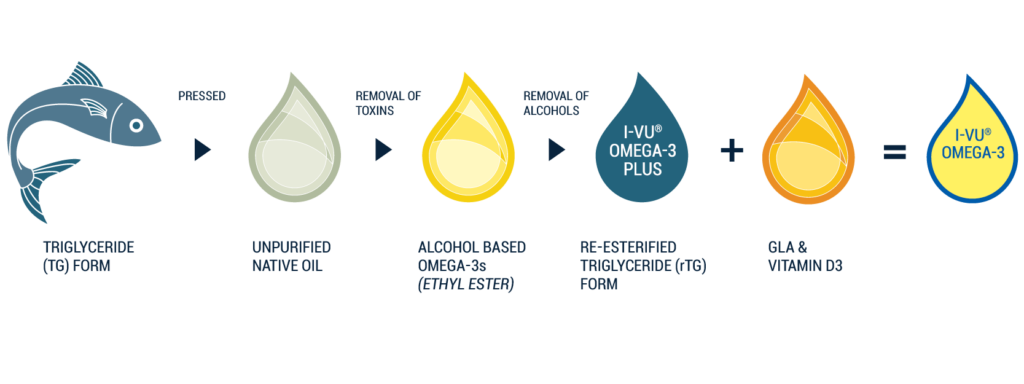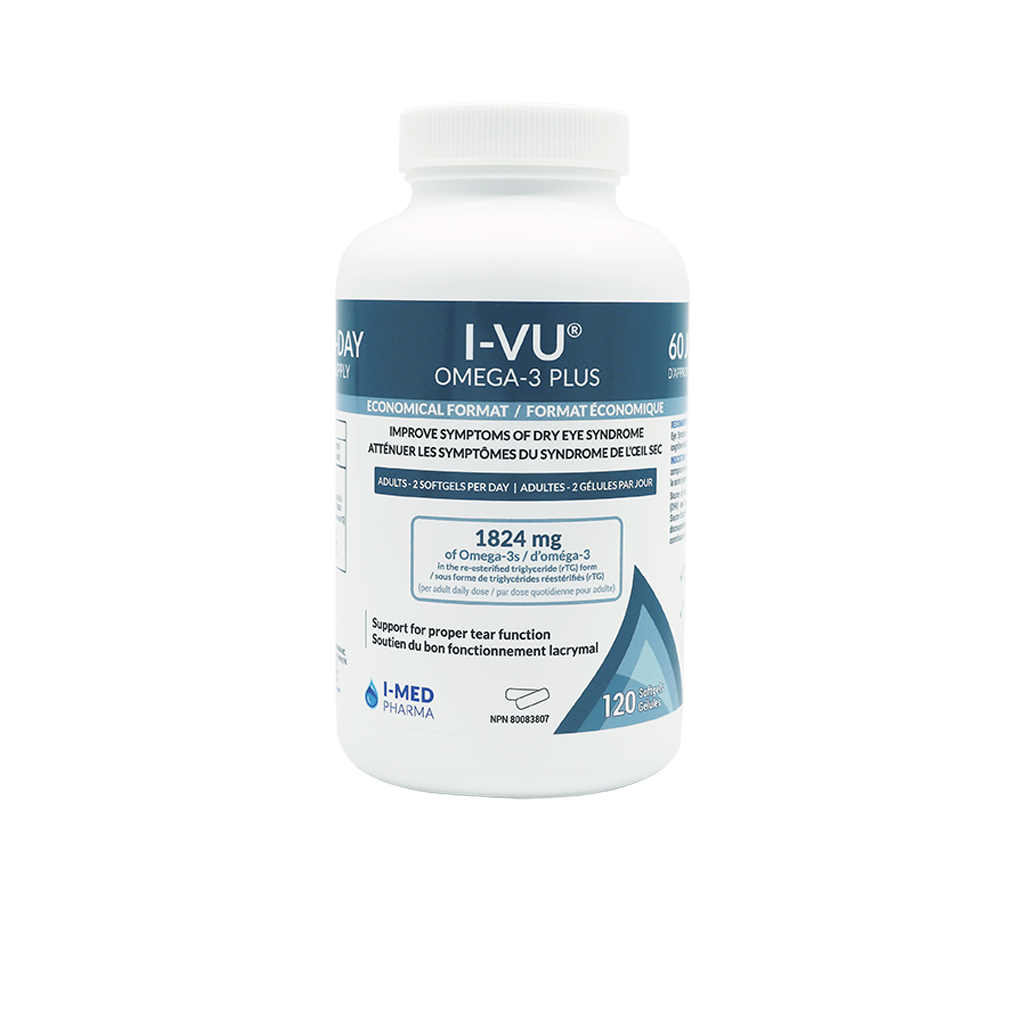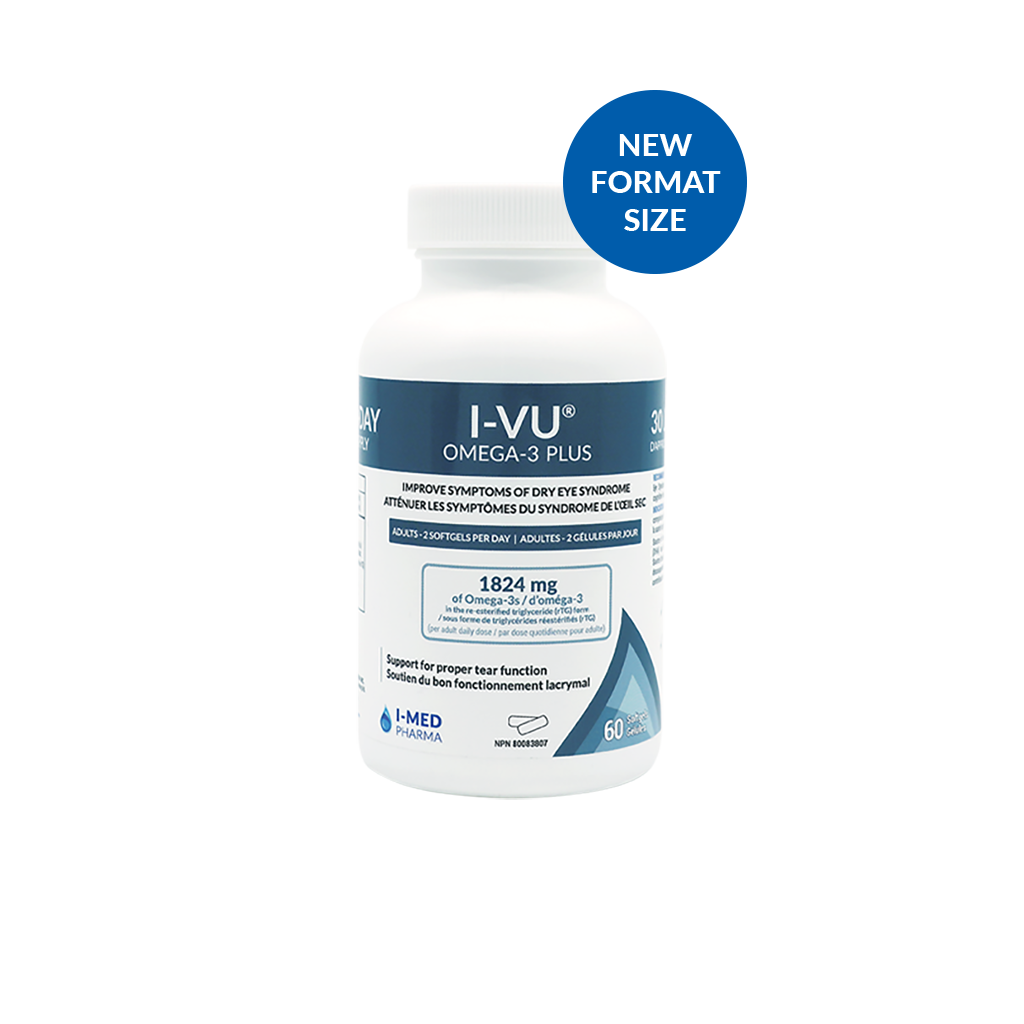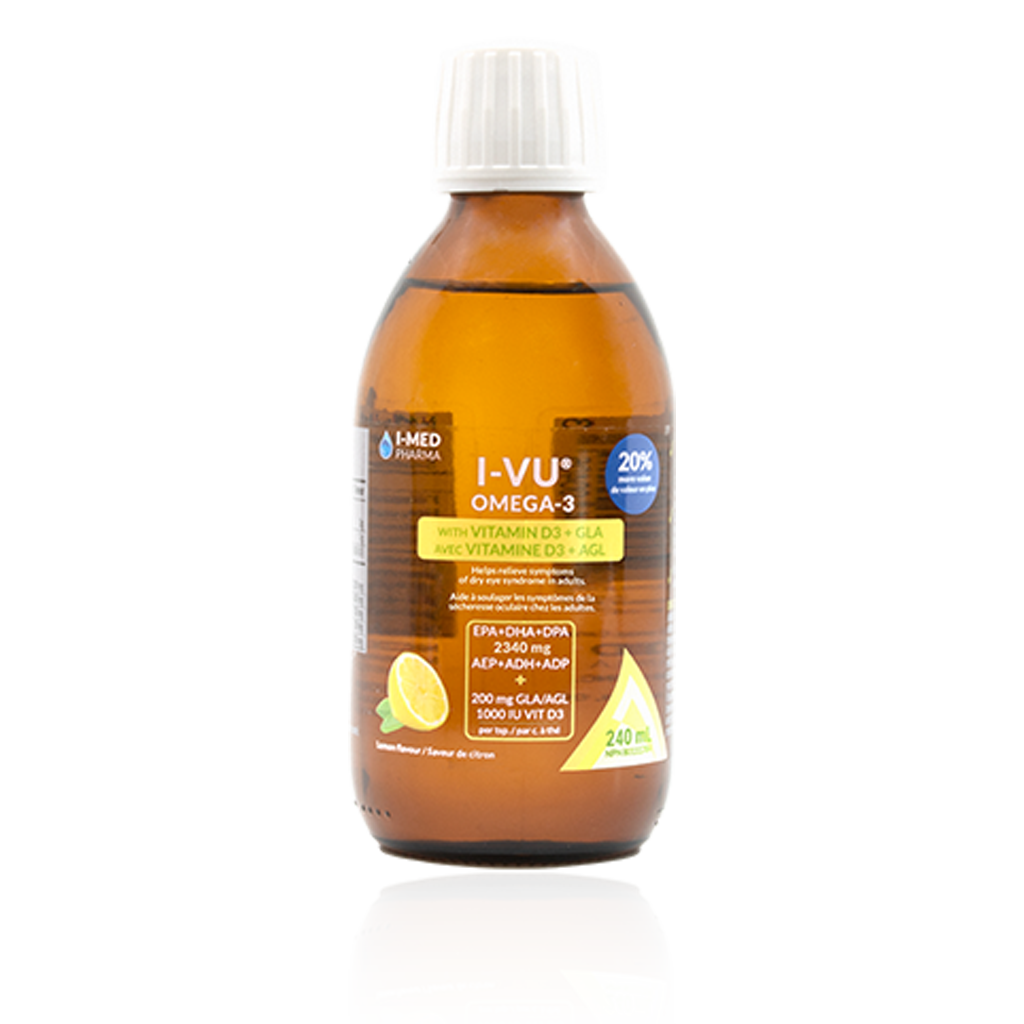Vitamin D
Vitamin D plays many roles in overall health, such as helping in the absorption and use of calcium and phosphorus. It also helps with the development and maintenance of bones and teeth. Vitamin D may help lessen dry eye symptoms and may also offer protection against the development of dry eye disease.[4]
Vitamin D is a unique nutrient because it is synthesized by the body after the skin is exposed to ultraviolet radiation from sunlight. However, various factors can impede a person from getting enough vitamin D absorbed into their body. These factors can include the season, time of day, cloud cover, and sunscreen.
It is very difficult to get vitamin D from natural dietary food sources. These are mainly limited to fatty fish and egg yolks. However, in Canada there are foods that are fortified with vitamin D, such as cow’s milk and margarine.

